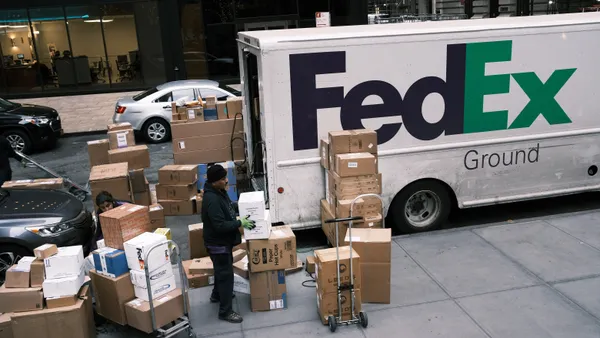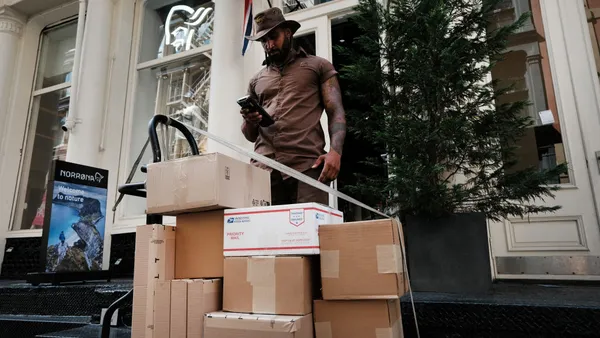Dive Brief:
- Pandion scored $41.5 million in funding to grow its parcel delivery network, boost delivery speeds and build new technology offerings, according to a March 21 announcement.
- The e-commerce delivery company's network reaches more than 80% of U.S. homes, but it is looking to expand into new areas with the funding round led by venture capital firm Revolution Growth. Pandion founder and CEO Scott Ruffin highlighted Denver, Minneapolis and the Pacific Northwest as potential targets.
- Launching in new markets is poised to drive additional volume growth from Pandion's customers. "Customers continue to expand with us," Ruffin said in an interview. "They try us in Market A. They expand to Market B."
Dive Insight:
Pandion is hoping its parcel shipping network — designed with carrier diversification in mind — will fuel its growth in a tough market for emerging delivery providers.
The company leans on a mix of the U.S. Postal Service, regional parcel carriers and gig economy delivery companies to get its customers' packages to their final destinations, Ruffin said. It handles the sourcing, contracting, onboarding and management of those carriers for its customers.
Pandion's delivery process involves picking up packages at shippers' fulfillment centers and sorting them at its facilities. The company currently has five sortation centers in the Philadelphia, Dallas, Los Angeles, Chicago and Atlanta areas.
Pandion then taps final-mile carriers for delivery, using machine learning technology to select the optimal provider based on factors such as speed and reliability. The end result is ground delivery speeds of one to five days, according to its website.
In the midst of a softer demand environment for carriers than when Pandion debuted in 2021, Ruffin said shippers are embarking on "a flight to quality." Customers are now more discerning with their carrier mix and eyeing providers that can offer low rates, provide strong service or both.
"Our biggest priority is making sure that we continue to serve our customers effectively," Ruffin said. "It's really all about execution."
While the bulk of Pandion's volume comes from large-scale shippers, more of its recent growth has come from smaller customers who don't have the purchasing power to secure favorable delivery contracts on their own, Ruffin said.
"You get a couple of cases where some customers or potential customers are choosing to kind of back away a little bit from diversification," Ruffin said. "But I would say, for the most part, those are customers that have a [sharply] declining revenue and volume base."














